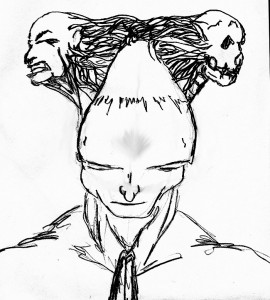 By Scott T. Allison and George R. Goethals
By Scott T. Allison and George R. Goethals
When you think of specific heroes, what people come to mind? In our initial survey of people’s heroes, we would often get two different kinds of answers to this question. Some people would list the names of their parents, teachers, coaches, and other individuals close to them. But other people would list the names of some of the classic heroes that every American learns about in school: Mahatma Gandhi, Martin Luther King, Jr., Abraham Lincoln, and other legendary figures.
Why two different lists? It turns out that how you word the survey question makes a big difference. We discovered that when you ask people to “list your heroes,” they list their family members and mentors. But when you ask people to “list the names of heroes,” they list the more famous, larger-than-life, cultural heroes. Apparently, we have two separate mental reservoirs of heroes, one that contains the names of people who heroically made a difference in our own personal lives, and another that contains the names of society’s most heroic legends.
You may not be surprised at all by this. But it caught us off-guard. We didn’t think that the inclusion of the pronoun “your” in the question would make a difference. But it certainly did. Our survey respondents appear to be telling us that Gandhi is a hero but not their hero. We apparently claim ownership of heroes who personally affect us. They are our heroes. But we deflect ownership, or perhaps share ownership, of famous heroes who have re-shaped entire societies.
When we first set out to study heroes, we had no idea that there were so many different distinctions and dichotomies that characterize heroes. This distinction between personal and cultural heroes is the latest, and there have been many others. Moral heroes versus ability-based heroes. Global heroes versus specific heroes. Direct heroes versus indirect heroes. True heroes versus false heroes. Split-second heroes versus lifetime heroes. The list goes on and on, and it is proof that heroism is a complex, multi-faceted phenomenon.
Our experience here also illustrates the perils and pitfalls of psychometrics. Psychologists always must be careful in how they measure responses in a survey. Sometimes we think we’re measuring one thing but we’re actually measuring something entirely different. And seemingly minor changes in the wording of a question can often yield very different results.
– – – – – – – – – – – – – – – –
A hero is also a sandwich. 😀
It’s interesting that people would make that distinction based on the inclusion of the pronoun. I would hope that they are sharing ownership of cultural heroes, rather than deflecting it; I’d hate to think that they were merely answering a quiz rather than relating something of personal significance. Mahatma Gandhi, Martin Luther King, Jr., Abraham Lincoln et al are cultural heroes, but they are also heroes to me.
Surveys are far from being substantial when it comes to deep topics as these. We need to sit down and know our respondents a little bit more so we’ll be able to extract the real answers.
^I agree completely, Tara.
Great post Scott. Love your summary.